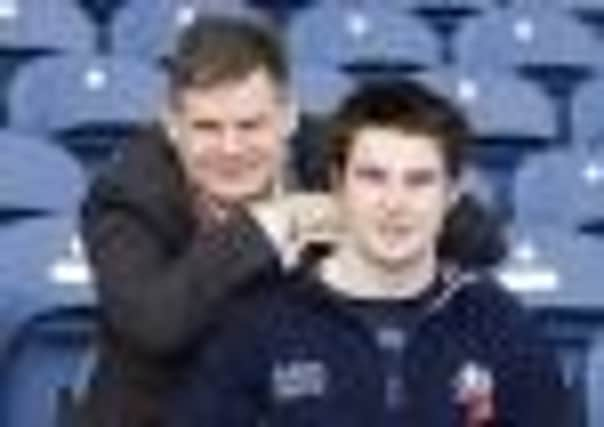I fear I’ve suffered brain damage - John Beattie


Beattie, 54, who is now a broadcaster with BBC Radio Scotland, took the decision after hearing new evidence suggesting rugby players’ brains may suffer the same long-term injuries sustained by boxers.
Beattie said one tackle during Scotland’s record 33-6 victory over England at Murrayfield in 1986 left him “seeing stars”. He quickly recovered, but now fears bruising encounters may have caused unseen damage.
Advertisement
Hide AdAdvertisement
Hide AdThe former No 8 forward, who has forged a media career since retiring from the game 25 years ago, first became concerned while researching the subject for a documentary to be broadcast today.
Beattie revealed he fears for his son, Johnnie, also a Scotland internationalist, and his daughter, Jenny, who plays elite football for Arsenal and Scotland ladies.
He said: “I have to be detached when I watch my son play. I want him, and Jennifer, to come out the other end unscathed.
“I quit rugby in my late twenties. I was never knocked out or taken to hospital, and I think my brain works. What I’ve found out is that the little bumps I took as a matter of course over 20 years might have affected my brain, and maybe rugby players need to be more aware of that unseen damage.”
On another occasion Beattie’s head was hit by the knee of an opposition player and his “whole world started swimming”.
“After the game I remember being in the bath with terrible visual disturbance,” he said. “You’re almost blind, thinking ‘I’ve got to sit quietly here because I can’t see, and pretend I’m OK, and then wait for it to go’.”
He added: “I remember sitting a couple of times in a bar in my local club, thinking, ‘I can’t actually see’. It seemed to start at the side of my eyes and then come across with lights and flashes.
Beattie is arranging a brain scan at the Southern General Hospital in Glasgow “in the next few months”.
Advertisement
Hide AdAdvertisement
Hide AdAfter his death, neuropathologists there will carry out a biopsy and attempt to isolate the cause of any brain injuries to rugby, so the risks of playing contact sports might be better understood for future generations.
“Sport is a fantastic thing, but if my brain can help protect young players, and raise awareness of the risks, then I’m happy,” Beattie said. “I’m going to get some of my rugby pals to offer theirs, too.”
Dr Willie Stewart, consultant neuropathologist at the Southern General, said: “We’ve known for years that boxers can have problems with head injuries – dementia pugilistica, or punch drunk syndrome, where boxers develop long-term problems with memory and a dementia-like illness.
“More recently, though, our colleagues in America have encountered a similar type of abnormality in the brains of people who have played other contact sports.”
Dr Stewart, who has studied brain samples in Glasgow, added: “The brain at rest is like soft jelly. If you apply sudden force, like a knee hitting a head, a car or a baseball bat, that sudden acceleration changes the brain into something much more rigid and prone to damage.
“Proteins can build up which are very similar to the proteins you see with Alzheimer’s disease and dementia.
“Until reasonably recently, we thought that damage went away after a few weeks. What we’ve more recently identified is that actually some of that damage can carry on for many years.
“The outcome is a combination of how hard you are hit combined with some genetic associations. The other thing is how often you hit it.”
• Sport of Hard Knocks will be broadcast on BBC Radio Scotland at 2pm today.